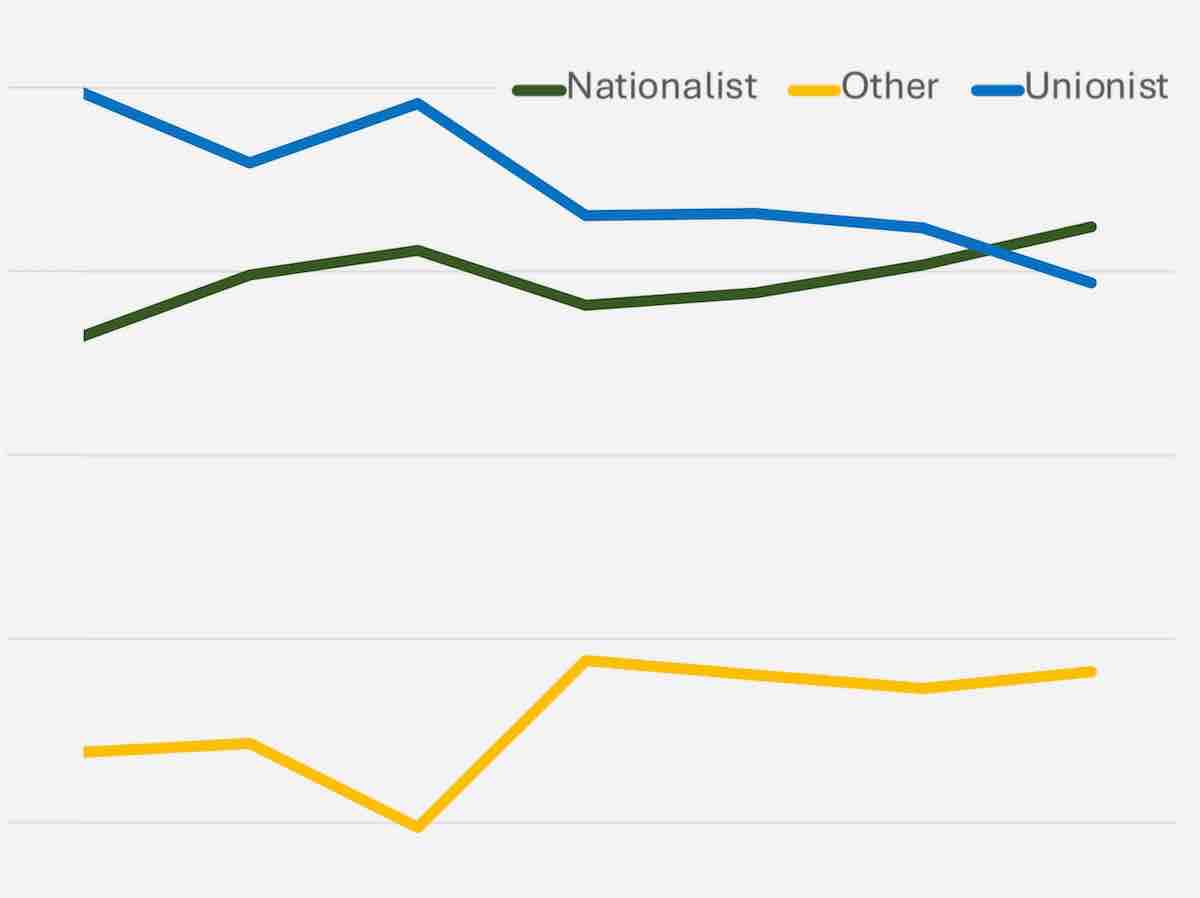
The political dynamic in the north of Ireland has changed significantly after nationalism vaulted ahead of unionism in Thursday’s council elections.
Including independents, candidates who support a united Ireland won 43.5% of the vote, compared to 39.3% for unionists. Initial silence and denial in the political establishment have given way to shocked efforts to reinvent the concept of a referendum in order to defend the union.
To the derision of nationalists on social media, ‘experts’ were predictably brought out to call for the conditions of a border poll - a referendum on reunification – be changed to require a “significant enough” nationalist supermajority, and require the “losers consent” of unionism.
The British Direct Ruler, Chris Heaton-Harris, has found himself in a position which would not have been envisaged as little as two years ago. The Good Friday Agreement states that Heaton-Harris must call a border poll “if it appears likely to him that a majority of those voting would express a wish that Northern Ireland should cease to be part of the United Kingdom and form part of a united Ireland”.
However, when pushed on his opinion of that criteria this week, he refused to answer, and said anyone interested “need to read the Belfast Good Friday Agreement”, adding that “it has got to be based on proper information”.
Unionists are in denial about the changing demographics and have been for some time, and they have continued to insist there has been no change.
Responding to the results, DUP leader Jeffrey Donaldson blankly refused to accept unionists are in a shrinking minority and claimed the north is “nowhere near” meeting the criteria for a border poll. He also said there was “no evidence” that Heaton-Harris believes there is a majority in favour of a united Ireland.
However, others in the DUP appear more sanguine. One senior DUP figure was quoted by the Financial Times as saying the party is looking for an assurance that there will be no preparations for Irish reunification until a border poll has been held.
In the aftermath of Thursday’s election, Sinn Féin also avoided discussion of the issue. Instead, Michelle O’Neill called on the Dublin and London governments to deliver a plan to restore the Stormont institutions, which remain suspended due to a DUP veto.
The Sinn Féin deputy leader said there now needs to be an urgent meeting of the British-Irish Intergovernmental Conference to plan a route to restore the assembly.
“It is not a tolerable situation, there shouldn’t be any more delays and I want to see a plan on the table as to how we are going to get back around the table to make politics work and to have a locally elected assembly,” she said.
But the party also strongly identifies with what Ms O’Neill says is the “historic change” taking place. And while the nationalist population is certainly increasing, there is also evidence that unionism is falling out of favour for other reasons.
According to the Economic and Social Research Institute (ESRI), a substantial gap in income, living standards, life expectancy and economic performance is growing between the North and the South.
The renewed debate on a border poll comes within days of the death of former British Direct Ruler Peter Brooke. His famous statement that Britain has “no selfish, strategic or economic interest” in the north of Ireland is seen as the starting gun for the peace process. The logic of that statement is now being tested.
Speaking at an event in Dublin on Wednesday night, marking the 25th anniversary of the peace deal which set out a border poll for the first time, former Sinn Féin leader Gerry Adams called for a date for it to be set.
“The Irish people have the right to self-determination. We have the right to determine our own future, without outside interference, peacefully and democratically. That is a central part of the Good Friday Agreement,” Mr Adams said.
“There is growing evidence from a succession of elections, academic reports and opinion polls that support for the reunification of Ireland is growing. Last week’s local government election in the north is the latest example of this.
“The Good Friday Agreement created a mechanism for constitutional change through referendums. It was overwhelmingly endorsed in referendums north and south.
“There is a constitutional obligation on the Irish government – including as a co-guarantor of the Agreement – to advance the objective of unity. That means planning now and engaging in a process of inclusive dialogue that ensures that the process of constitutional change is democratic and seamless.”
Mr Adams said the 26 County government should establish a Citizens Assembly on unity, adding Dublin “should agree with the British government a firm date for the unity referendum provided for by the Good Friday Agreement”.
“I am not suggesting that this should take place immediately but the Irish Government should seek a date now which allows for inclusive preparation to begin. And that preparatory work should start now,” Mr Adams said.
![[Irish Republican News]](https://republican-news.org/graphics/title_gifs/rn.gif)
![[Irish Republican News]](https://republican-news.org/graphics/title_gifs/harp.gif)

